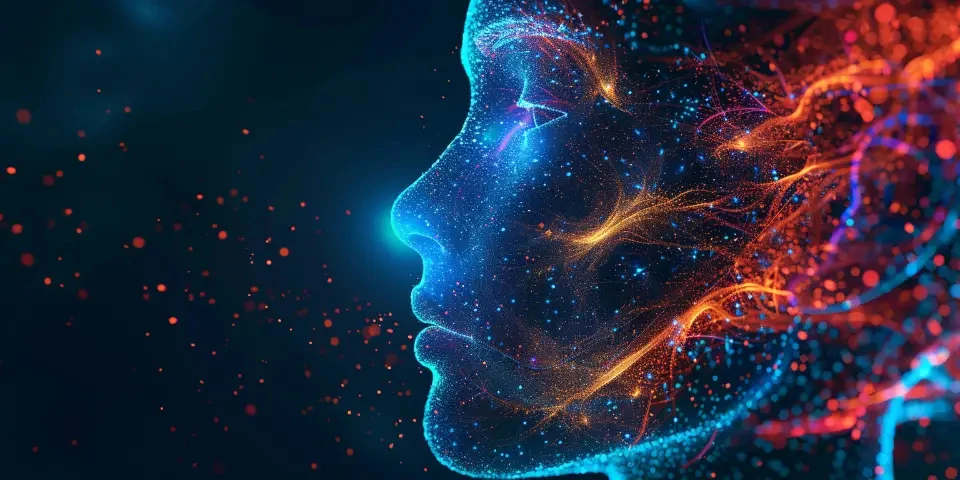AI for sustainable development using technology to tackle global challenges
In recent years, artificial intelligence (AI) has emerged as a powerful tool for addressing global challenges and promoting sustainable development. By harnessing the potential of AI, societies can find innovative solutions to complex problems and create a more inclusive and sustainable future. This article explores how AI is being utilized in various sectors to tackle these challenges.
1. Climate Change Mitigation and Adaptation
AI plays a crucial role in addressing climate change by enabling accurate prediction models and enhancing decision-making processes. Machine learning algorithms can analyze vast amounts of climate and weather data to identify patterns and predict future scenarios. This helps in developing informed strategies for reducing greenhouse gas emissions and adapting to changing climate patterns.

Furthermore, AI-powered sensors and monitoring systems facilitate real-time data collection, allowing for early detection of environmental risks and more effective response to natural disasters.
2. Sustainable Agriculture and Food Security
AI-based technologies have the potential to revolutionize agriculture by optimizing crop cultivation practices, minimizing resource wastage, and improving the overall efficiency of food production. Machine learning algorithms can analyze soil data, weather conditions, and plant characteristics to optimize irrigation, fertilization, and pest control, leading to higher crop yields and reduced environmental impact.
In addition, AI can assist in enhancing food supply chains by optimizing logistics, reducing food waste, and improving distribution to ensure food security for all.
3. Renewable Energy Generation and Management
AI enables the optimization of renewable energy systems, making them more reliable, efficient, and cost-effective. Machine learning algorithms can analyze data from various sources, such as weather patterns, energy consumption, and grid management, to optimize energy production and distribution in real-time.
Moreover, AI can facilitate the integration of renewable energy sources into existing power grids, helping to reduce reliance on fossil fuels and promote the transition to a sustainable energy future.
4. Environmental Conservation and Biodiversity
AI technologies have been instrumental in monitoring and protecting the environment and its biodiversity. For instance, AI-powered drones and satellite imagery can track illegal deforestation activities, monitor wildlife populations, and identify areas at risk of ecological degradation.
Furthermore, AI algorithms can analyze vast amounts of data, such as species distribution records and environmental factors, to predict the impact of environmental changes on biodiversity and inform conservation efforts.
5. Smart Cities and Sustainable Urbanization
AI plays a pivotal role in creating sustainable and smart cities. By analyzing data from various sources, including sensors, social media, and transportation systems, AI can optimize energy consumption, traffic flow, waste management, and resource allocation in urban areas.
Additionally, AI-powered applications, such as smart grids, intelligent transportation systems, and energy-efficient buildings, contribute to reducing the environmental impact of urbanization while improving the quality of life for urban dwellers.
6. Healthcare and Disease Prevention
AI applications in healthcare have the potential to revolutionize disease prevention, diagnosis, and treatment. Machine learning algorithms can analyze medical records, genetic data, and epidemiological information to identify patterns, predict disease outbreaks, and develop personalized treatment plans.
Moreover, AI-powered wearable devices and remote monitoring systems enable early detection of health issues, promote preventive measures, and enhance the overall efficiency of healthcare services.
7. Social Equality and Inclusion
AI can contribute to building more inclusive societies by addressing social inequalities and promoting equal opportunities. Machine learning algorithms can analyze large datasets to identify discrimination patterns, biases, and inequalities in various domains, including education, employment, and law enforcement.
Furthermore, AI-powered language translation tools and voice recognition technologies help bridge communication barriers, enabling equal access to information and services for all individuals.
8. Cybersecurity and Data Privacy
As AI becomes more prevalent, ensuring cybersecurity and protecting data privacy become critical challenges. AI algorithms can help detect and prevent cyber threats by analyzing large amounts of data, identifying unusual patterns, and improving system defenses.
However, it is essential to strike a balance between AI-powered cybersecurity measures and data privacy concerns to maintain trust and ethical practices in the digital age.
Conclusion
AI holds immense potential in addressing global challenges and promoting sustainable development across various sectors. By leveraging AI technologies, societies can make informed decisions, optimize resource utilization, and create innovative solutions that contribute to a more inclusive and sustainable future for all.
Frequently Asked Questions (FAQs)
1. Can AI completely replace human decision-making in sustainable development?
No, AI should not replace human decision-making, but rather complement it. AI can provide valuable insights and assist in complex data analysis, enabling better decision-making. However, human judgment, ethical considerations, and social values remain essential in navigating sustainable development challenges.
2. Are there any limitations or risks associated with AI in sustainable development?
Yes, there are potential risks and limitations associated with AI in sustainable development. These include biases in algorithms, data privacy concerns, job displacement, and unequal access to AI technologies. It is crucial to address these challenges and ensure responsible and ethical AI implementation.
3. How can developing countries benefit from AI in sustainable development?
Developing countries can benefit from AI in sustainable development by leveraging its potential for leapfrogging traditional development pathways. AI-powered solutions can help overcome infrastructural limitations, improve public services, and promote inclusive and sustainable development in resource-constrained settings.
Explore your companion in WeMate